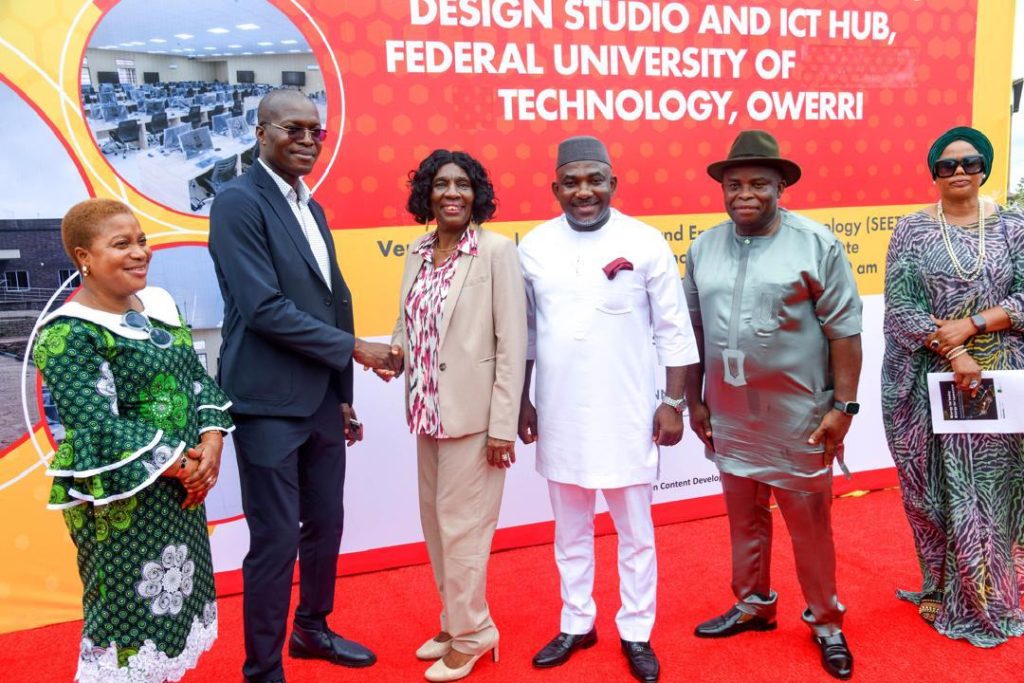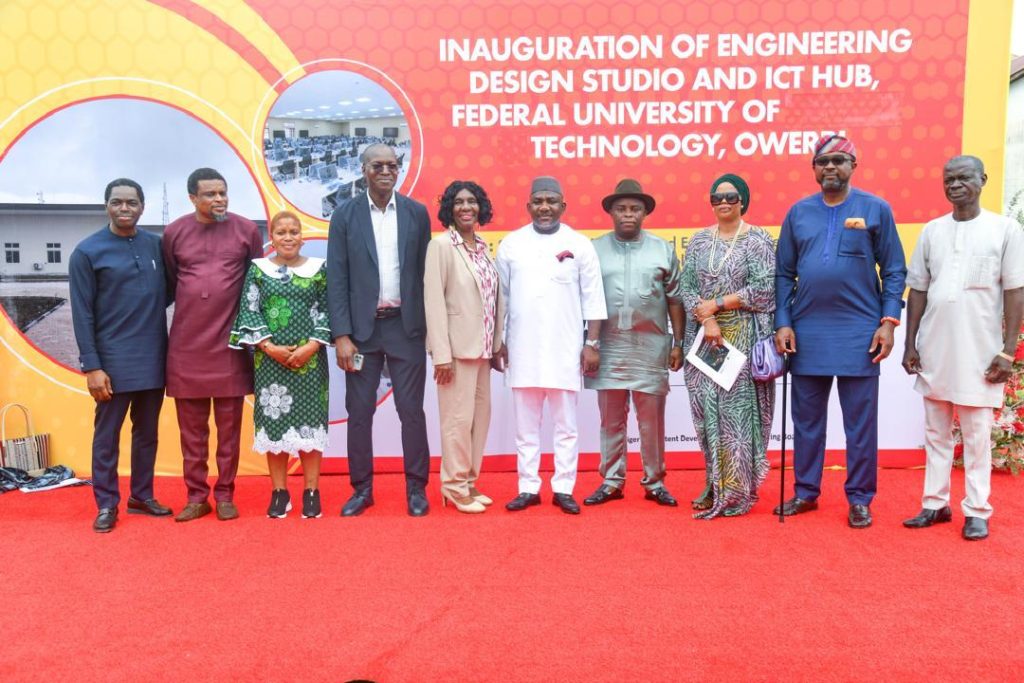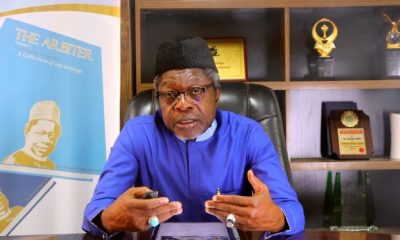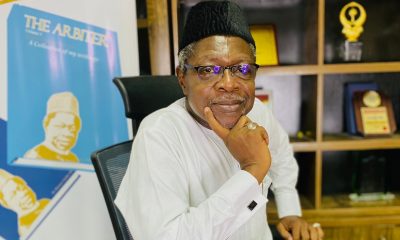OIL AND GAS
NCDMB, Shell JV Partners Donate Engineering Studio, ICT Hub to FUTO
NCDMB, Shell JV Partners Donate Engineering Studio, ICT Hub to FUTO
AJAGBE ADEYEMI TESLIM
SPONSORED BY: H&H
The Nigerian Content Development and Monitoring Board (NCDMB) and Shell Petroleum Development Company (SPDC), with its joint venture (JV) partners, on Thursday unveiled world-class engineering design studios and an information and communication technology (ICT) hub at the Federal University of Technology, Owerri (FUTO).

The facilities were conceived and donated in furtherance of the Nigerian Content Human Capacity Development (HCD) programme which had focused lately on institutional strengthening, equipping universities and revamping select technical and vocational schools across the country
in a bid to develop competent technical manpower and craftsmen needed in the oil and gas industry and the linkage sectors.
The new facilities include two state-of-the-art Engineering Design Studios and a fully furnished 100-seater Main ICT Lecture Hall, equipped with computers and smartboards.
The studios are designed to serve as a “visually stimulating collaborative workspace that fosters an environment where students can engage in group work, brainstorming sessions, and ideation meetings.”
Other facilities are a 200KVA diesel generator, diesel storage tank, generator house, borehole, overhead water tank, perimeter mesh wire fence, a car park, as well as shallow drains and landscaping.
In his remarks at the ceremony, the Executive Secretary of NCDMB, Engr. Felix Omatsola Ogbe, said the studios and hub were initiated in furtherance of Federal Government’s aspirations for development of competent technical manpower to support activities in the oil and gas industry and its linkage sectors.
The impartation of specialised skills through expansion and modernisation of academic infrastructure, he noted, has to be accelerated.
According to the NCDMB boss, who was represented by the Board’s Director in charge of Capacity Building, Dr. Ama Ikuru, “We shall keep enhancing institutional capacity to equip our students with the requisite knowledge and skills needed to compete globally in the wake of the 4th industrial revolution where Artificial Intelligence, data science, Internet of Things, robotics dominate.”
Recalling several interventions by the NCDMB in academic institutions to boost acquisition of contemporary skills, Engr. Ogbe said, “the Board has carried out the upgrade of many vocational schools and universities under its Technical and Vocational Education and Training Centres (TVETs) upgrade programme” and that it believes in “the significance of education particularly the Science, Technology, Engineering and Mathematics (STEM) courses,”
In his own address, the Managing Director and Country Chair of SPDC, Mr. Osagie Okunbor, described the Engineering Design Studio and ICT Hub as a “very important human capital development project” that has resulted from a fruitful collaboration between SPDC, JV partners, notably, NNPCL, SPDC, TotalEnergies, Nigeria Agip Oil Company (NAOC), and NCDMB.

Represented by the General Manager, External Relations, Shell Petroleum Development Company (SPDC) Igo Weli, Okunbor disclosed that FUTO was “selected to benefit from institutional strengthening in the catchment areas of SPDC’s Assa North Ohaji South Gas Development Project” and that the facility was in line with the associated Nigerian Content Human Capacity Development Plan” and “in accordance with the provisions of the NOGICD [Nigerian Oil and Gas Industry Content Development] Act, 2010 and NCDMB’s HCD Guidelines of 2020.”
He promised that “A 40KW solar system will be installed in the coming weeks to ensure sustainable energy supply” to the facility.
In a related address, the Chief Upstream Investment Officer, NNPCL Upstream Investment Management Services, Mr. Bala M. Wunti, observed that “Innovation thrives in an environment where ideas can be freely exchanged and developed,” adding that “The Engineering Studio and ICT Hub is designed to be such a place where students, researchers, and faculty can collaborate on projects, share knowledge, and push the boundaries of what is possible.”
Represented by the Senior Advisor Stakeholders Relations, Mrs. Halimat Wilson, the NNPC top official stated that the true impact of the facility would be measured by the success stories that emerge from it.
The State Governor, Senator Hope Uzodinma, represented by the Commissioner for Digital Economy and E-Government, Dr. Chimezie Amadi, thanked Shell and its partners and the NCDMB for providing the State with what he described as vital digital infrastructure. He said the facility would serve as a centre for innovation and creativity that would contribute to the development of the State.
Earlier in a welcome address, the FUTO Vice Chancellor, Professor (Mrs.) Nnenna Nnannaya Oti, said the facility “aligns with the critical mandate of the University, to jumpstart national development through indigenous technology-based teaching pedagogy that emphasises practical knowledge, innovations and problem solving.”
She expressed profound appreciation to the Managing Director and Country Chair of Shell, the Executive Secretary of the NCDMB, and the Group Chief Executive Officer of NNPCL, among others, “for making such a landmark donation” to the University.

The dignitaries were conducted round the facilities before the ribbon cutting.
On the NCDMB team were the General Manager, ICT, Obinna Osuji, Zonal Coordinator, Abia and Imo States, Mr. Emma Ohanere, and Manager, Capacity Building, Engr. Dokubo Obongo.




